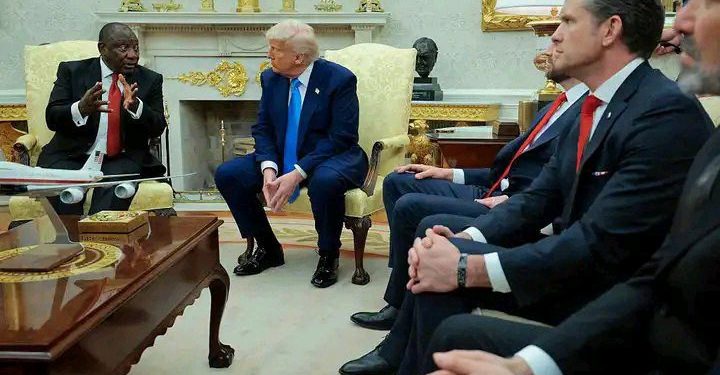As part of his pre-election trade agenda, former U.S. President Donald Trump has reignited criticism of South Africa’s Black Economic Empowerment (BEE) policies, calling them “racist” and harmful to American business interests. His planned “Trade Fairness First” policy platform, set to be unveiled in the coming weeks, could become a key pillar of his foreign economic strategy if he wins the 2025 U.S. presidential election.
During a campaign rally in Texas, Trump condemned South Africa’s post-apartheid affirmative action measures, vowing that the U.S. would not tolerate policies he claims push American companies out of the market. “South Africa’s BEE is terrible for fair trade and investment,” he declared, drawing cheers from supporters. His remarks echo previous accusations made during his presidency, including unsubstantiated claims in 2020 that the South African government was seizing land from white farmers—a narrative widely disputed by human rights groups and experts.
Economic and Diplomatic Fallout
South Africa’s Department of International Relations and Cooperation (DIRCO) has yet to issue an official response, but diplomatic sources stress the country’s constitutional commitment to economic redress. “BEE is not racist; it’s a necessary framework to address historical inequalities,” said an anonymous official. However, concerns are mounting that Trump’s renewed attacks could strain U.S.-South Africa relations, particularly if he imposes trade restrictions or sanctions upon re-election.
Economist Thabo Maseko warns that South Africa, already grappling with slow growth, high unemployment, and a weak currency, cannot afford a trade war with the U.S. “Any economic pressure from a major trading partner like America would ripple across the region,” he said.
Domestic Reactions: ANC Defends BEE, Opposition Calls for Reform
South Africa’s ruling ANC has staunchly defended BEE, framing it as essential for economic transformation. “BEE is about building an inclusive economy that reflects our nation’s diversity,” a party spokesperson said. Meanwhile, the opposition Democratic Alliance (DA) advocates for revising the policy to prioritize merit and entrepreneurship over rigid racial quotas.
“Empowerment should benefit all South Africans, not just the politically connected,” said DA leader John Steenhuisen.
Broader Implications for U.S.-Africa Relations
Analysts fear Trump’s combative stance—coupled with his skepticism toward foreign aid and multilateral trade—could mark a turning point in U.S.-Africa relations. “A Trump presidency with a protectionist agenda could undo decades of U.S. engagement in Africa,” said Professor Nompumelelo Hlophe of the University of Cape Town. In response, South Africa may seek stronger ties with alternative partners like China or the EU.
As Trump’s campaign amplifies debates over race, equity, and global trade, diplomats and investors are bracing for potential turbulence in U.S.-South Africa relations. With the 2025 election looming, the fallout could reshape economic and geopolitical dynamics far beyond either nation’s borders.






















